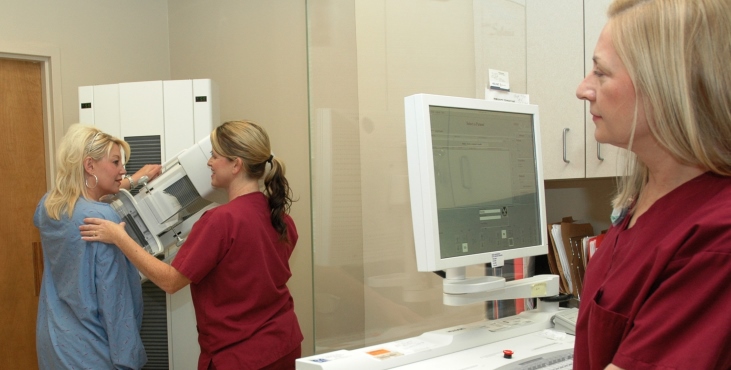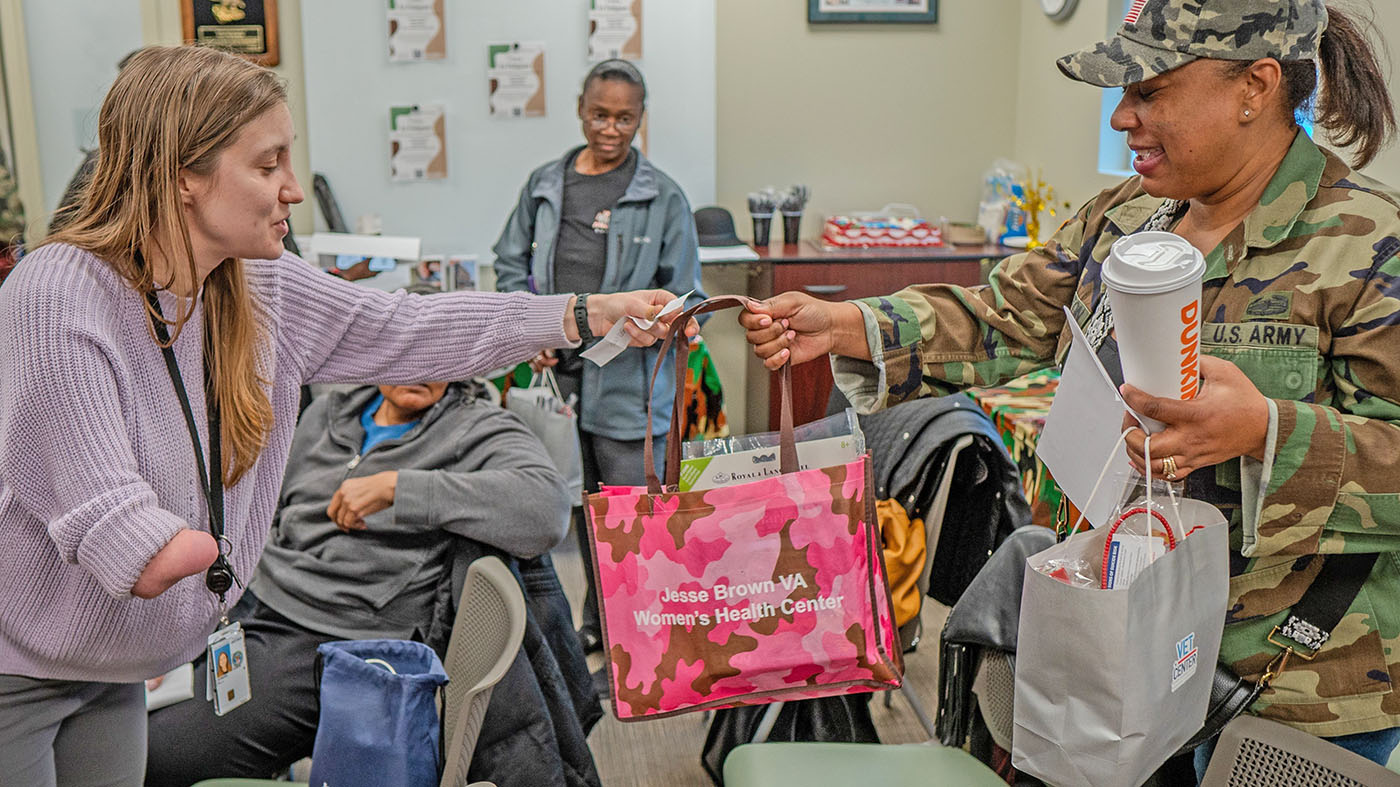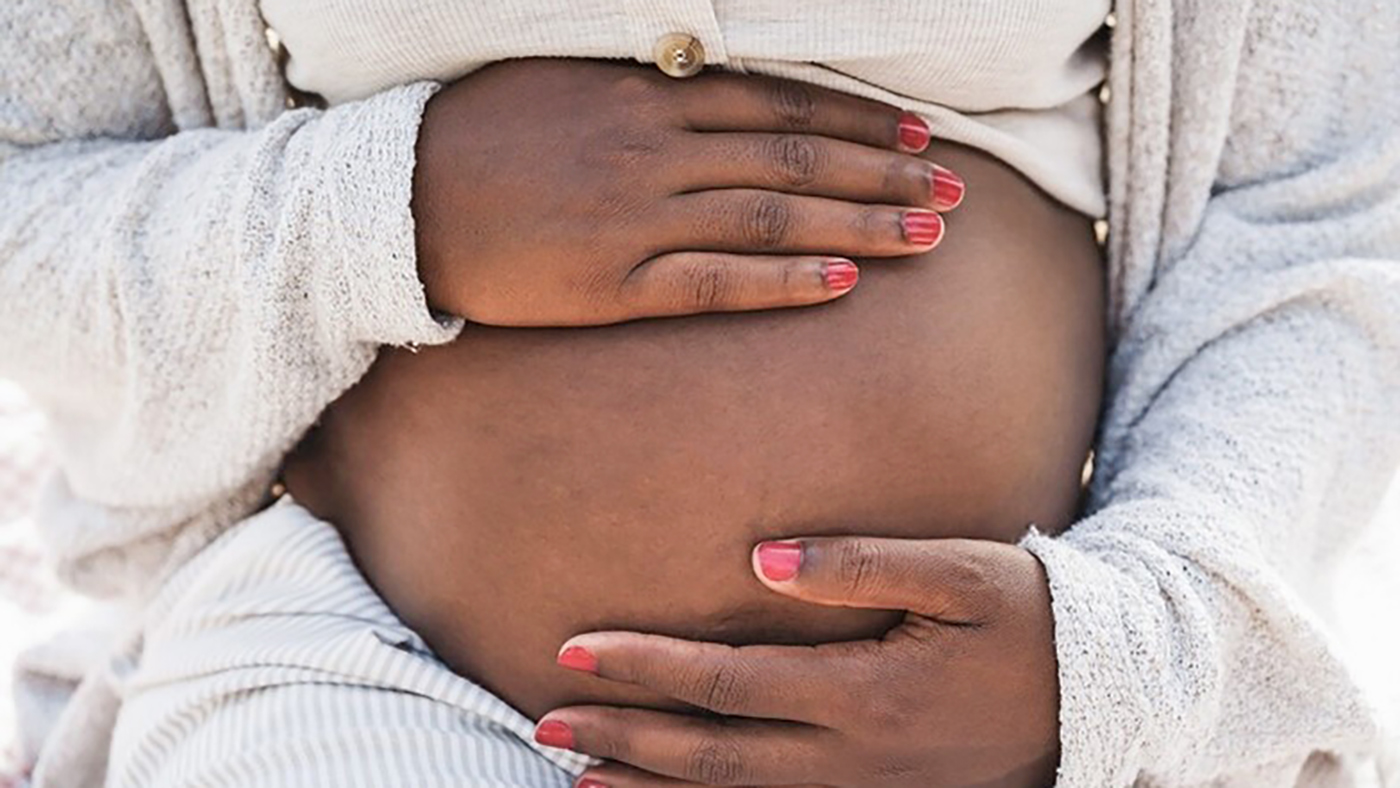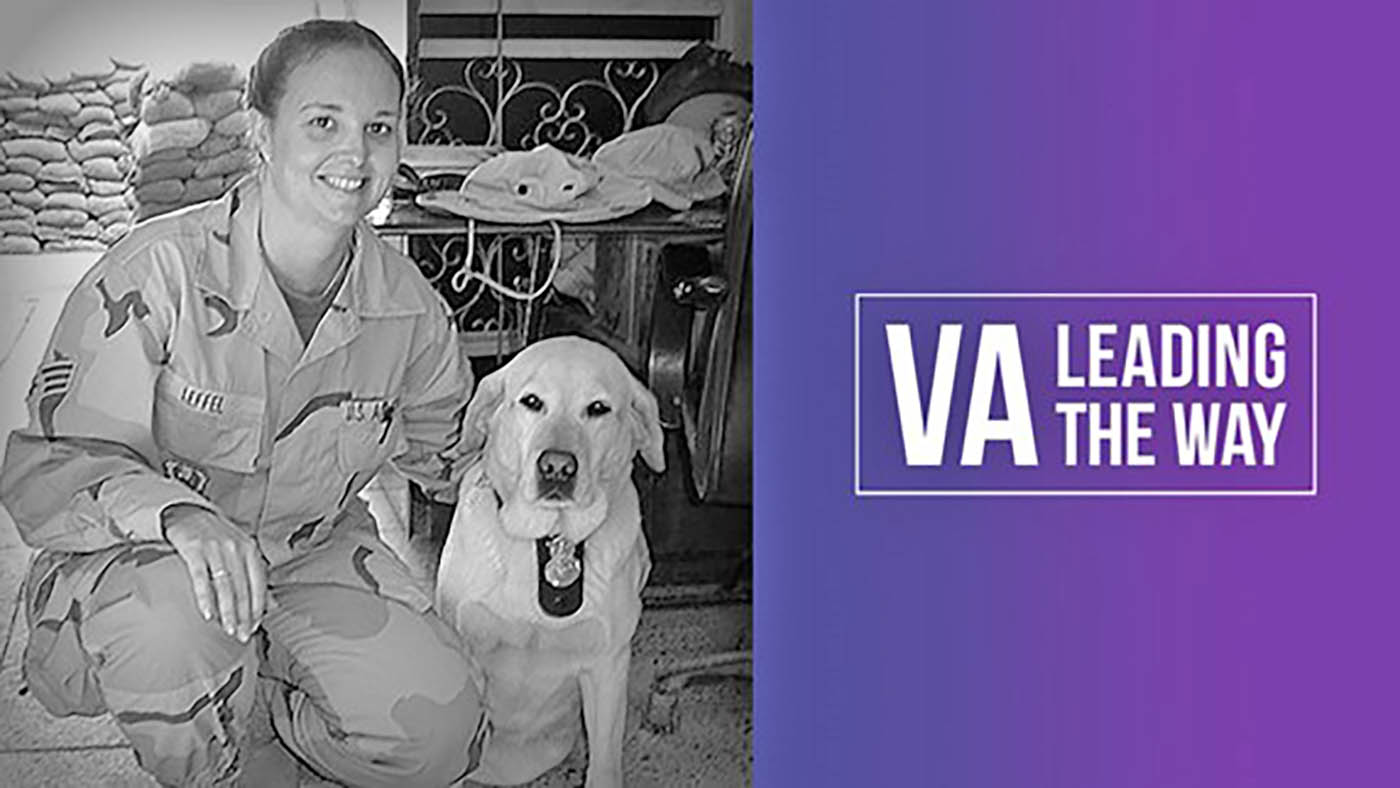One of the fiercest debates in health care in recent years has been about breast cancer. What is the best way to catch the disease early on? Should all women in a certain age bracket get mammograms? How often? And what exactly should the age cut-offs be?
Doctors disagree among themselves on these questions and different groups offer varying guidelines.
For example, the U.S. Preventive Services Task Force recommends a screening mammography every two years for women ages 50 to 74. For other age groups, the decision gets more complicated, based on many individual factors.
The American Cancer Society, on the other hand, says all women should begin having yearly mammograms by age 45.
VA researchers hope to bring more clarity to the issue by using data from the Million Veteran Program (MVP). Now with over 600,000 Veterans enrolled, MVP has become one of the world’s largest databases of health and genetic information.
Several studies are now underway using MVP data, and one of them focuses on predicting breast cancer risk.
Here’s the basic idea of the study: Follow tens of thousands of women who are enrolled in MVP, and who currently don’t have breast cancer. Study their genetic profiles—and all the other clinical, demographic and exposure information available in the database—and track which of the women develop breast cancer over time. The process should shed light on which risk factors matter most, and result in a prediction model that is more robust and precise than any in current use.
Using the new model, providers could recommend that women at higher risk start screening at an earlier age—40, say—and perhaps get a scan every year, versus every two years. Women with a very elevated risk might benefit from extra screening measures, such as a breast MRI.
Here’s what the researchers on the study say about what they hope to accomplish: “Our work will significantly enhance our abilities for early detection, and optimize and individualize breast cancer screening for all women Veterans and women in general.”
The team is led by Dr. Shiuh-Wen Luoh. A specialist in breast cancer, he is a staff physician at the VA Portland Health Care System, and an assistant professor at Oregon Health and Science University. Luoh says his overall career goal is to “bring laboratory research to patient care for the benefit of breast cancer patients.”
As of now, nearly 50,000 women are enrolled in MVP, and that number is growing. Women make up nearly seven percent of VA’s population. MVP has set the ambitious goal of having women represent 11 percent of the overall MVP cohort by 2020.
Importantly, some 20 percent of women now enrolled in MVP are African American. Current prediction models for breast cancer risk are based mainly on studies of older, predominantly Caucasian women. It’s not known whether certain genetic variants affect risk in the same way for white and black women. The new study will help answer that question, among others.
Also, past research on breast cancer risk has largely not accounted for the special health risks that women Veterans face. Intense physical training, for example, or deployment to areas with various environmental hazards could increase stress and add to cancer risk.
Kayla Williams, director of VA’s Center for Women Veterans, and herself a Veteran and military spouse, has expressed strong support for the study, and for MVP on the whole:
“As a proud participant in the Million Veteran Program, I’m thrilled to learn that upcoming research will help better predict breast cancer risk. Many women Veterans that I know are concerned that environmental exposures may have impacted their cancer risk, so it’s wonderful to know this pivotal work will help improve screening guidelines for our population. I encourage other women Veterans to sign up for MVP, too – it was fast and easy when I did it!”
To learn more about MVP, visit their website at https://www.research.va.gov/mvp/. And if you are a VA patient who has not yet enrolled in this landmark research effort, aimed at improving Veterans’ health now and in the future, please consider doing so.
Topics in this story
More Stories
Chicago Vet Center and VA gave women Veterans information on VA services available to them.
VA is committed to providing safe, accessible care that meets the unique challenges faced by black mothers.
Women Veterans are the fastest-growing Veteran population and VA has evolved its care to meet their needs.








VERY DISAPPOINTED!!! I’m in the MVP and I too have breast cancer concerns, I have significant maternal history of breast cancer, including my mother. I am able to go through VA Choice for my yearly mammogram. At my last mammogram, I was asked if I have had genetic testing for the bars 1 & 2 gene. I have not. My PCM and I discussed this, he said it would be beneficial and would find out. The next day, I contacted our Women’s Healthcare Coordinator, I was extremely disappointed because she couldn’t give me an answer. That’s her job! How is she qualified as our WHC? I did my own research online to see if the VA will do genetic testing. No one has contacted me. I need the testing!
Robin Edwards, I too would like to have the testing for the gene. What are the odds of women vets requesting this test become available? My concern after that would be conquences of being diagnosed with the gene and Insurance ramifications.
I’d like to know how the MVP program is being applied to concerns the male population has asw it relates to prostate cancer, heart problems, mental deterioration, ageing, etc. As was stated in the article, women make up a small minority of the overall population of veterans. What is being learned for the rest of us?
You can see some of the other stories we’ve covered on MVP here: https://vaww.blogstest.va.gov/VAntage/?s=million+veteran+program
As one of the earliest veterans to join the program, I’m happy to see the MVP data being put to good use. I wonder, if the VA offered to do a free genetic profile (such as those done by 23andme and similar companies) for veterans who enrolled in MVP, if more of us would join. It would be a nice benefit for those of us who are interested in having their DNA explored for information about our ancestors.
It is sad to say but in Syracuse, NY were I go to the VA for my healthcare there is NO Mammogram Services. I fortunately am able to go to Crouse Women’s Health were my Mammograms are done. Thank goodness…for them!
I really feel for women who don’t had the opportunity whether it be transportation or financial reasons. The VA in Upstate NY should make Mammography a priority in both hospitals as well as clinical settings. This IS A MUST!
SGT Kimberly A Haley